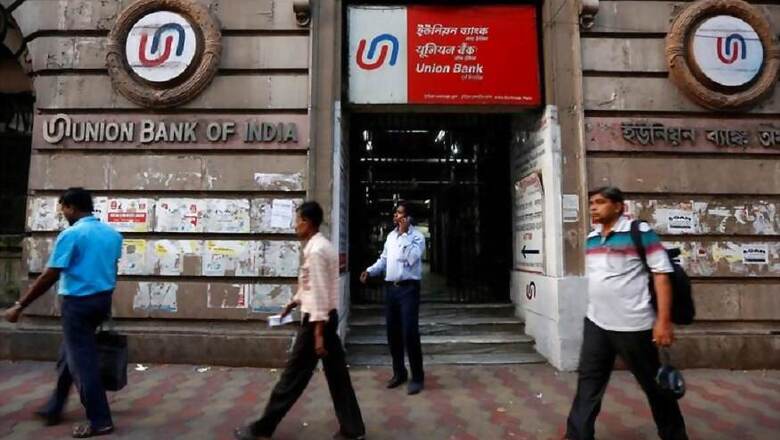
views
Union Bank of India shares dropped as much as 4.7% in early trade on Tuesday after finance minister Nirmala Sitharaman announced its amalgamation with Andhra Bank and Corporation Bank under the government’s mega-merger plan for public sector banks (PSU banks).
At 9:29 am, shares of Union Bank were trading down 3.7% at Rs 56.70, after hitting an intra-day low of Rs 56.10. Meanwhile, shares of Andhra bank were up 2.3%, while those of Corporation Bank was down 1.4%.
The combination of Union Bank of India with Andhra Bank and Corporation Bank will create India's fifth-largest public sector bank with Rs 14.59 lakh crore business and 9,609 branches. Moreover, since all three banks share a common core banking software (CBS), Finacle, integration and realisation of gains would be quicker.
Union Bank of India will also get Rs 11,700 crore of capital infusion from the government as part of the upfront release of Rs 70,000 crore capital for PSU banks.
In a separate development, Union Bank of India on Saturday also said it would reduce its marginal cost of funds-based lending rate (MCLR) by up to 15 basis points across various tenors with effect from 1 September 2019. Following this rate cut, the benchmark one-year MCLR will come down from 8.5% to 8.35%.
Sitharaman on 30 August unveiled a merger plan of 10 PSU banks into four to create fewer and stronger global-sized lenders amid a slowdown in economic activity.
The four new sets of banks to be created after merging the following banks are: 1) Punjab National Bank, Oriental Bank of Commerce and United Bank of India; 2) Canara Bank and Syndicate Bank 3) Union Bank of India, Andhra Bank and Corporation Bank; and 4) Indian Bank and Allahabad Bank.
Indian Overseas Bank, UCO Bank, Bank of Maharashtra and Punjab and Sind Bank will continue as separate entities due to their strong regional focus, while Bank of India and Central Bank of India will also operate separately.
While the move is aimed at making Indian banks globally competitive, analysts raised questions over merging the weak banks with strong ones at a time when asset quality concerns linger.


















Comments
0 comment